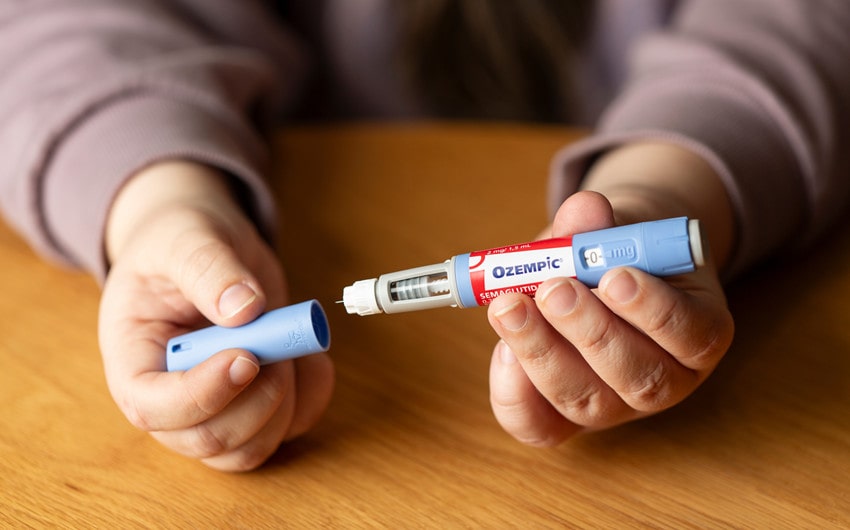Ozempic and Early Detection: Empowering Communities to Take Charge
Empowering communities through early detection and awareness of diabetes can significantly improve health outcomes. Ozempic, a medication used to manage type 2 diabetes, plays a crucial role in this effort. By regulating blood sugar levels alongside diet and exercise, Ozempic supports individuals in maintaining their health and preventing complications.
Early detection of diabetes is vital for effective management. Community outreach and educational programs can raise awareness about the disease’s symptoms and the importance of monitoring blood sugar levels. This approach not only educates but also encourages proactive health measures, ultimately fostering healthier communities.
Public health initiatives should focus on providing communities with access to these vital medications and monitoring services.
Awareness and prevention go hand in hand with legal and safety considerations. Staying informed about the current status of the Ozempic lawsuit in 2024, which involves legal battles over drug side effects, is essential for patients and healthcare providers. This knowledge empowers individuals to make informed decisions about their treatment options, ensuring they can take charge of their health confidently.
Understanding Ozempic and Its Role in Diabetes Management
Ozempic, an FDA-approved medication, is pivotal in managing blood sugar levels for Type 2 Diabetes patients. This section explores Ozempic’s mechanism, the significance of early detection, and the active ingredient, Semaglutide.
What Is Ozempic and How Does It Work?
Ozempic is a glucagon-like peptide-1 (GLP-1) receptor agonist known generically as Semaglutide. This injectable medication is designed for weekly use to help individuals with Type 2 Diabetes manage their blood sugar levels. Ozempic works by stimulating the pancreas to release more insulin when blood sugar levels are high, thereby lowering blood sugar levels.
Additionally, Ozempic slows down gastric emptying, which helps moderate post-meal blood sugar spikes. By enhancing insulin secretion and delaying gastric emptying, it effectively reduces Hemoglobin A1C (HbA1c) levels. The drug does not replace lifestyle interventions but works best when combined with proper diet and regular exercise. Its use has been associated with significant weight loss, making it a dual-purpose treatment.
The Importance of Early Detection in Type 2 Diabetes
Early detection of Type 2 Diabetes is crucial for effective management and to prevent complications. Identifying the condition early allows for timely interventions, including lifestyle modifications and medications such as Ozempic. Regular screening and monitoring of blood sugar levels should be standard practice, especially for those at risk.
Primary care providers play a key role in encouraging patients to undergo routine check-ups and screenings. Guidelines recommend that individuals with risk factors like obesity, family history, and sedentary lifestyle get screened more frequently. Early detection enables immediate action, which can slow the progression of the disease and reduce the risk of severe complications like cardiovascular events and kidney damage.
Routine lab tests are essential. They ensure the medication’s safety and efficacy, helping detect potential issues early. These tests include blood glucose levels, kidney function, and liver enzymes.
Semaglutide as an Active Ingredient
Semaglutide, the active ingredient in Ozempic, is a powerful GLP-1 receptor agonist. It works by mimicking the naturally occurring hormone GLP-1, which regulates blood sugar levels in the body. Semaglutide binds to GLP-1 receptors, enhancing insulin secretion in response to meals and suppressing glucagon release.
Research has shown that Semaglutide reduces HbA1c much more effectively than some other diabetes medications. It also promotes weight loss by reducing appetite and calorie intake. The medication is backed by robust clinical trials, establishing its safety and efficacy. Due to its potent effects, Semaglutide has become a critical player in the arsenal of diabetes management tools.
Lifestyle, Accessibility, and Supportive Measures in Diabetes Care
Implementing a healthy lifestyle, ensuring medication accessibility, and utilizing supportive networks are critical in managing diabetes effectively. These measures can significantly improve health outcomes and quality of life for individuals with diabetes.
Incorporating Diet and Exercise for Effective Diabetes Management
A balanced diet and regular exercise are essential components of diabetes management. A healthy lifestyle helps regulate blood sugar levels and prevents complications. Individuals should focus on a balanced diet rich in whole grains, vegetables, lean proteins, and healthy fats.
Regular exercise such as walking, swimming, or cycling can improve insulin sensitivity and assist in weight management. Medical professionals often recommend 150 minutes of moderate-intensity exercise per week. It is crucial to tailor exercise routines based on a person’s medical history and fitness level.
Insurance Coverage and Accessibility to Diabetes Medication
Access to necessary diabetes medications like Ozempic can be challenging due to financial barriers. Insurance coverage, including Medicare, Medicaid, and private insurance, plays a crucial role in reducing costs. Programs like Novo Nordisk’s Patient Assistance Program and GoodRx provide discounts and support for expensive medications.
The high cost of diabetes care in the United States underscores the need for comprehensive health insurance. Patients should explore their insurance plans to understand coverage for prescriptions and diabetes management tools. Special attention should be paid to formulating plans that include extensive coverage for diabetes-related prescriptions.
Leveraging Support Networks and Medical Advice
Support networks are invaluable in diabetes care. Family, friends, and social media groups can provide emotional and practical support. Joining support groups allows individuals to share experiences, find encouragement, and stay motivated.
Professional medical advice is essential for managing diabetes effectively. Regular check-ups, consultations with dietitians, and guidance from endocrinologists can offer personalized care. A strong support network coupled with expert medical guidance helps patients navigate challenges and maintain a healthy lifestyle.
By focusing on a balanced diet, seeking financial assistance for medication, and leveraging support networks, individuals with diabetes can lead healthier, more empowered lives.






